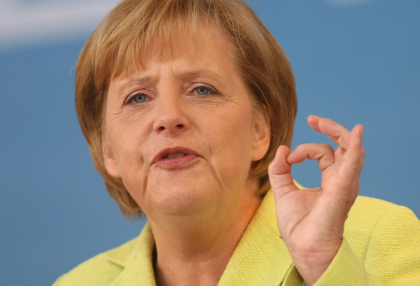The Euro (EUR) took another battering on Tuesday as more weak economic data send the currency falling against the US Dollar (USD) and many other major peers.
Against the Pound (GBP) the Euro managed to hold onto gains as the UK currency took a beating from worse than forecast inflation data.
France got the session off to a negative start as data out of the Eurozone’s second largest economy showed that the nation’s Current Account Deficit widened more than expected in August and inflation fell by -0.4% on a monthly basis in September, adding to fears that the country is heading towards a period of deflation.
Data out of Spain and Italy confirmed that those two nations were already experiencing deflationary pressures. In a monthly basis inflation in Italy fell -0.4% from the previous figure of -0.2% in September.
Following on from those reports was the publication of Eurozone industrial production data. The report compiled by Eurostat showed that industrial production across the 18-member Eurozone fell more than expected.
According to Eurostat, production fell by 1.8% in August on a monthly basis and declined by -1.9% on a year on year basis. Economists had been expecting a rise of 1% and 2.2% respectively. Economic sentiment across the struggling currency bloc also tumbled. ZEW’s sentiment index fell from September’s reading of 14.2 to 4.1 in October.
The main concern for the Euro came from data out of Germany, which is already spooking the markets as a run of data releases have come in well below expectations.
Economic sentiment in the region’s largest economy worsened to its lowest level since December 2012 in September.
In its report, the ZEW Centre for Economic Research said that its index of German economic sentiment fell by 1.7 points to 6.9 this month from Augusts’ reading of 8.6. Analysts had expected the index to decline by 3.8 points to 4.8 in September.
The ongoing standoff with Russia over the Ukraine crisis was blamed as a major contributer to the fall in sentiment.
Euro Expected to Remain Under Pressure
“Germany was the economic powerhouse of Europe, but it too is now being infected with malaise … a wobbling German economy is deeply worrying for the whole of Europe”, said financial analyst Louise Cooper.
Recession is looking increasingly likely to take effect in Germany, which in turn is likely to drag the Eurozone into a triple dip recession.
The Euro is likely to fall further on Wednesday as it is unlikely that German inflation data will come in positively. A further decline will increase fears over deflation and will increase pressure on the European Central Bank to introduce new measures to try to boost inflation and growth.
Euro Exchange Rate News:
[table width=”100%” colwidth=”50|50|50|50|50″ colalign=”left|left|left|left|left”]
Currency, ,Currency,Rate ,
Euro, ,US Dollar,1.2649 ,
,US Dollar,1.2649 ,
Euro, ,British Pound,0.7933 ,
,British Pound,0.7933 ,
Euro, ,Australian Dollar,1.4482 ,
,Australian Dollar,1.4482 ,
Euro, ,Canadian Dollar,1.4236 ,
,Canadian Dollar,1.4236 ,
[/table]



